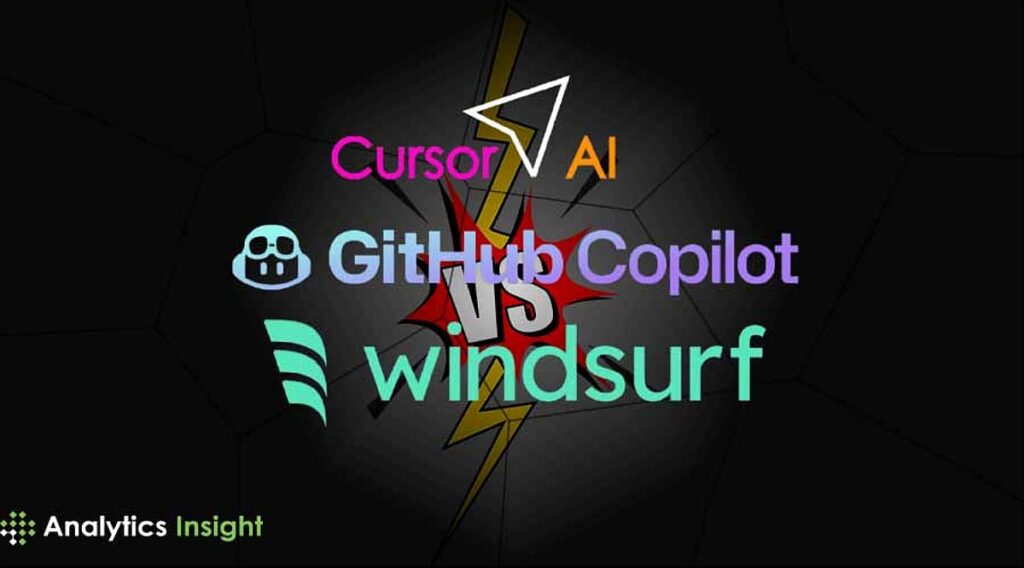The evolution of software development has been significantly influenced by the integration of artificial intelligence (AI) into programming tools. As organizations strive for greater efficiency and reduced reliance on manual coding efforts, tools such as GitHub Copilot, Cursor, and Windsurf are emerging as essential components in the modern programming ecosystem. Each of these tools caters to distinct user requirements, indicating that AI’s role in programming is not merely a trend but a progressive shift poised to alter how development is approached.
GitHub Copilot has established itself as a frontrunner in the AI code editing landscape, largely due to its seamless integration with widely used Integrated Development Environments (IDEs). This tool is particularly beneficial for experienced developers who require robust support across various programming languages. By providing uninterrupted code suggestions and facilitating a streamlined workflow, Copilot fosters an environment where coding scenarios can be navigated with enhanced agility. Its strengths lie not only in its intuitive interface but also in its capacity to effectively handle diverse coding tasks, empowering developers to focus on innovation rather than mundane syntax.
In contrast, Cursor is tailored for those seeking a more affordable entry into AI-assisted coding. Equipped with features such as real-time code generation and offline capabilities, Cursor offers a practical solution for students and amateur programmers. While it may lack some of the advanced features characteristic of more sophisticated tools, its cost-effectiveness and user-friendly design make it an attractive alternative for individuals or small teams operating on limited budgets. This emphasis on simplicity does not detract from its utility but rather enhances its accessibility, enabling a wider demographic to gain exposure to AI-enhanced programming.
Meanwhile, Windsurf addresses a crucial niche in the market: developers engaged in large-scale applications. Its sophisticated automation and refactoring capabilities are engineered to support complex coding environments and navigate expansive codebases. Windsurf’s focus on multi-line code completion, debugging assistance, and efficient code navigation is particularly strategic for organizations that contend with high-pressure projects or intricate software architectures. The scalability of Windsurf makes it an excellent investment for large enterprises, offering a robust return on investment (ROI) by reducing the time spent on debug processes and enhancing overall productivity.
When evaluating these tools through a comparative lens, several key factors emerge: strengths, weaknesses, costs, return on investment, and scalability. GitHub Copilot is undoubtedly powerful but may demand a higher financial commitment, which could be a barrier for smaller businesses or startups. Conversely, while Cursor’s lower cost is appealing, it may lack some of the advanced capabilities required by larger or more complex projects. Windsurf, with its advanced feature set, excels in scalability but at a premium price that may deter organizations with tighter budgets.
Strategically, SMB leaders must consider the trade-offs between these tools. The alignment of tool features with organizational needs should dictate their choice. For teams managing small to mid-level projects, the user-friendly interface and cost savings associated with Cursor may provide the best initial experience. On the other hand, enterprises with larger-scale projects should seriously consider investing in Windsurf, as its comprehensive suite of features may ultimately enhance productivity, reduce errors, and support future growth. Calculating the ROI entails analyzing how much time and resources each tool will save over its operational lifespan, considering not only upfront costs but also long-term benefits.
Moreover, as AI-driven tools continue to evolve, they will likely improve further, shaping the future of software development in profound ways. As they incorporate advanced learning algorithms and become more adept at problem-solving, the capability of these tools to drive innovation and streamline coding tasks will expand exponentially. In the coming years, the competencies of AI programming assistants will become increasingly central to organizational strategies, enabling developers to focus on higher-order thinking and creative solutions.
In conclusion, determining the best AI and automation platform involves a careful assessment of project requirements, budget constraints, and team capabilities. GitHub Copilot offers a robust solution for seasoned programmers, while Cursor presents an accessible entry point for novices. Windsurf stands out for enterprise-level scalability and complexity. As leaders in the SMB space navigate this landscape, they should remain attuned to the ongoing advancements in AI technologies that promise to further revolutionize their approach to software development.
FlowMind AI Insight: Investing in the right AI-driven development tools can propel your organization forward, enabling enhanced productivity and innovation. As these platforms mature, they will provide ever-greater returns, empowering teams to tackle increasingly complex challenges with confidence and efficiency.
Original article: Read here
2025-03-21 07:00:00

